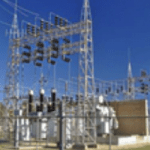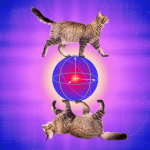Quantum News Briefs July 21: A quantum radar that outperforms classical radar by 20%, Rice researcher & director of the Rice Center for Quantum Materials earns prestigious DOD grant, Scientists warn the ‘quantum revolution’ may stagnate economic growth + MORE

Quantum News Briefs July 21:
A quantum radar that outperforms classical radar by 20%
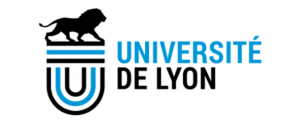 A research team at Ecole Normale Supérieure de Lyon, CNRS recently developed a quantum radar that could significantly outperform all existing radars based on classical approaches. This new radar, introduced in a paper published in Nature Physics, concurrently measures an entangled probe and the idler microwave photon states occurring once this probe reflects from target objects, merging with thermal noise.
A research team at Ecole Normale Supérieure de Lyon, CNRS recently developed a quantum radar that could significantly outperform all existing radars based on classical approaches. This new radar, introduced in a paper published in Nature Physics, concurrently measures an entangled probe and the idler microwave photon states occurring once this probe reflects from target objects, merging with thermal noise.
Several past studies tried to develop quantum radars that outperformed conventional radars. This quantum advantage was eventually realized using optical systems, yet before this study it was not yet achieved using microwave radiation.
Huard and his colleagues are thus the first who developed a microwave-based quantum radar that performs significantly better than any classical radar technology reported to date. Their radar works by exploiting correlations imprinted between two microwave radiations beyond the bounds of classical physics theories.
Past research showed that quantum correlations can make radar detection up to four times faster in scenarios with comparable signal power and target noise. In initial evaluations, the microwave quantum radar developed by the researchers sped up radar detection by 20% compared to classical radars. Click here to read the original article in Phys.org in-entirety.
Rice researcher & director of the Rice Center for Quantum Materials earns prestigious Defense Department grant
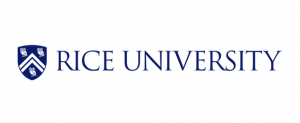 Rice University professor Qimiao Si ia a recipient of the prestigious Vannevar Bush Faculty Fellowships from the United States Department of Defense. Quantum News Briefs summarizes the announcement on Rice University website July 20.
Rice University professor Qimiao Si ia a recipient of the prestigious Vannevar Bush Faculty Fellowships from the United States Department of Defense. Quantum News Briefs summarizes the announcement on Rice University website July 20.
The highly competitive, five-year fellowships are among the federal government’s most prestigious individual research honors. Bush fellowships are awarded annually and include $3 million to pursue cutting-edge fundamental research. While the number of awardees varies each year, there are generally only about 50 active fellows.
Si joined Rice in 1994 and is the Harry C. and Olga K. Wiess Professor of Physics and Astronomy, director of the Rice Center for Quantum Materials and a member of the Rice Quantum Initiative. A condensed matter theorist, he studies phenomena that give rise to strange behaviors and properties of quantum materials like unconventional superconductors, heavy fermion metals and topological semimetals. He is best known for his contributions to the theory of quantum criticality, which concerns the physics of matter undergoing transitions from one quantum state to another.
As a Bush fellow, Si will pursue the validation of a groundbreaking framework to create and control topological states of matter.
“The research will establish a fresh, unconventional approach to the discovery and predictive design of quantum materials, and it may lead to novel platforms for quantum functionality such as quantum sensing and quantum information processing,” Si said. Click here to read announcement in-entirety on Rice University site.
Scientists warn the ‘quantum revolution’ may stagnate economic growth
Researchers Chander Velu and Fathiro Putra described the “productivity paradox” in a recently published commentary in the Naturet and explained how the mainstream adoption of quantum computing could slash economic growth for a decade or more. Quantum News Briefs summarizes Tristan Greene’s July 19 article about their commentary in CoinTelegraph.
The “productivity paradox” is a business and finance term that explains why the introduction of new, better technology doesn’t usually result in an immediate increase in productivity.
To explain the productivity paradox, the researchers cite a period lasting from 1976 through 1990, when labor productivity growth — a measure of how productive individuals are at work over time — slowed to a crawl. The reason for this stagnation involved the onset of the computer era.
Essentially, the costs associated with the global switch from paper to computers combined with the need to retrain the entire workforce and create entirely new solution ecosystems and workflows caused the trend of growth to stall out until the integration was finally completed during the mid-1990s.
The researchers see a similar predicament occurring as quantum computers go from brushing up against usefulness to potentially becoming a backbone technology for business.
The two main roadblocks to a smooth transition into the quantum age, according to the researchers, are a lack of general understanding of the technology among leaders and risk aversion.
To mitigate these concerns and accelerate the adoption of quantum computing, the researchers suggest a renewed focus from governments and researchers on illustrating the potential benefits of quantum computing and the development of language and terminology to explain the necessary concepts to the business community and the general public. Click here to read Greene’s article in-entirety.
PQShield selected to participate in AWS European Defence Accelerator
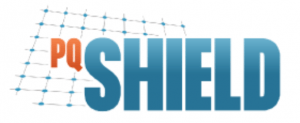 PQShield has been selected by AWS to participate in its AWS European Defence Accelerator, to advance the development and deployment of cutting-edge quantum-resistant encryption technology. Quantum News Briefs summarizes.
PQShield has been selected by AWS to participate in its AWS European Defence Accelerator, to advance the development and deployment of cutting-edge quantum-resistant encryption technology. Quantum News Briefs summarizes.
This collaboration elevates PQShield’s ability to support defense and national security organizations across Europe and addresses four key focus areas of the defense industry’s needs identified by the AWS European Defence Accelerator.
Energy Resilience:
Cryptography plays a pivotal role in securing critical national infrastructure (CNI), as it remains a primary target for nation-state attacks. PQShield’s innovative cryptographic solutions will bolster the energy sector’s resilience, protecting vital assets and ensuring uninterrupted service.
Secure Information Sharing:
Confidentiality and integrity are paramount in secure information sharing. PQShield’s advanced encryption algorithms provide robust protection for sensitive data, guaranteeing its confidentiality and integrity during transmission and storage.
Quantum:
As quantum advancements accelerate, the need for quantum-safe cryptography becomes increasingly urgent. PQShield is at the forefront of this evolving field, developing and implementing cryptographic solutions that can withstand the power of quantum computers. This collaboration will enable rapid advancements in the realm of quantum cryptography.
Cyber Resilience:
Beginning in September 2023, the AWS European Defence Accelerator is a four-week technical, business, and mentorship program delivered in collaboration with Plexal, a United Kingdom Government supported innovation technology firm. Participating start-ups are eligible to receive AWS computing credits, specialized AWS training, mentoring from defense and national security domain and technical subject matter experts, business development, go-to-market advice, and investment guidance. To further accelerate their solutions’ go-to-market opportunities, the cohort companies will have the chance to connect with AWS defense customers, industry leaders, and members of AWS Partner Network (APN) looking for defense solutions. Click here to read the announcement in-entirety on the PQShield website.
Sandra K. Helsel, Ph.D. has been researching and reporting on frontier technologies since 1990. She has her Ph.D. from the University of Arizona.




















